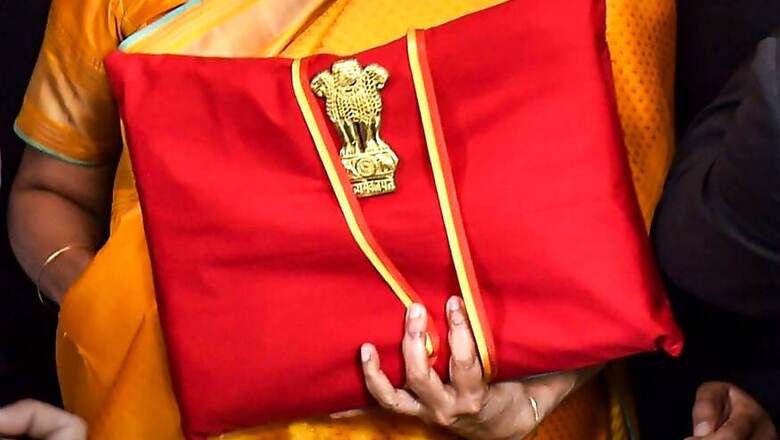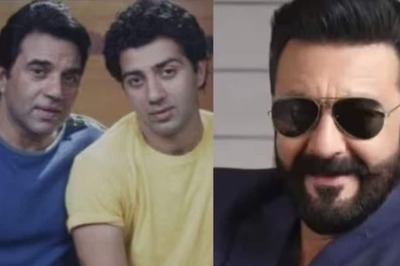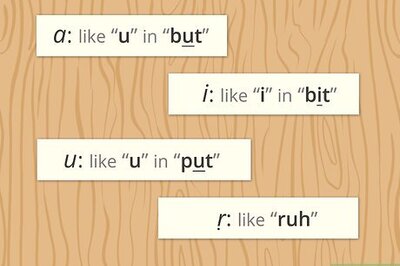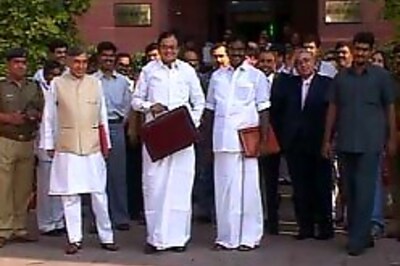
views
India's current economic scenario is nothing like it was when finance minister Nirmala Sitharaman presented the Union Budget on February 1, 2020. The sector-specific allocations and the financial outlook is far from the present reality.
Just over two months ago, the economy was not staring at an unprecedented recession, the unemployment rate was not at an all-time high, labour participation was not crumbling and industries across sectors were not preparing, or rather yielding, to huge losses.
Some of India's top economists say it will be necessary for the Centre to come up with a second budget after the coronavirus crisis settles giving way to an economic storm.
India's first chief statistician Pronab Sen welcomed the idea.
"What is very likely to happen is that the priorities of the budget are most likely to change. And it will have to be reflected somewhere rather than waiting for next year. So you treat the February 1 budget essentially as an interim budget and then go ahead and have another one later," he said.
Asked which sectors he thinks should be given priority, Sen said, "I wouldn't want to do it in a sector-specific manner. The nature of the problem is fairly generic. One should concentrate the sectoral damage in the banking sector and have a massive package for the banking sector. The government at the moment certainly does not have the bandwidth to figure out how to reach large chunks of the system that are damaged. Better to let the banks do that."
Sen, who has served as the functional and technical head of the country's national statistical system, as well as Secretary, Ministry of Statistics & Programme Implementation, recognised the need to get the jobs market back on track and for that scaling up demand is the only solution, he said.
"Everything is ultimately going to depend on how quickly the demand side picks up. Because what would happen by then is 2-3 months of income would have been lost. People would have by then completely drawn their savings particularly in the lower income category. Therefore, rebuilding core demand should be the focus," he added.
Ritu Dewan, vice-president of the Indian Society of Labour Economics and former president of the Indian Association for Women's Studies, agreed on the need for a revised budget and laid out the possible options to be explored.
"The second budget needs to be done in consultation with all political parties, stakeholders and NGOs. Even before coronavirus hit India, the demand side was a problem. The government needs to put people first. They need to take into account that it is the people of India who have suffered because of the pandemic. It has to take into account consumption, employment, health as the most important areas. If you want to keep the supply chain running, you have to announce in the budget that supply of raw materials will be free," she said.
Ritu, who was the first-ever woman director of the Department of Economics in University of Mumbai, added, "In order to get consumption back into the cycle, the government has to provide wages to all informal sector workers. Universal basic income is an option. There are so many camps that have been set up. They can easily be turned into production units. There is need for so many masks and gloves that can be home produced. These camps can be used to produce them and in turn can earn wages. It will take care of demand and consumption issues."
Abhijit Sen, former member of the Planning Commission of India and currently professor at Jawaharlal Nehru University, considered September "a good time” for a second budget.
"I think it will be a good idea because there is no way that you can rely on the assumptions which went into the budget. So you can stick with those numbers, but they have no substance. The budget exercise will also depend on whether or not the government needs to go to Parliament to get supplementary grants. Now, if the supplementary grants change the nature of the budget completely, then it is worth having a new budget otherwise you can go through supplementary grants route,” he added.
“The role of Parliament is essentially to approve expenditure. So they would have to come to Parliament because expenditure would have gone way above planned for in the budget. And numbers on the revenue side would fall hugely short. It should probably be left till things have settled down. Somewhere near September would be a good time," said Sen who was awarded the Padma Bhushan for his work in public affairs in 2010.
DK Srivastava, chief policy adviser at EY India, also agreed that India needs a second budget but only when complete normalcy returns.
"I think both on the expenditure side and the revenue side, there are going to be major changes. On the tax revenue side, performance has been significantly lower than the revised estimate for the financial year. So the base for the next financial year need to be changed. The growth and buoyancy assumption for the financial year also needs to be changed. Similarly, for expenditure side, priorities have completely changed and therefore a new strategy for allocation needs to be in place. Most importantly, fiscal deficit needs to be revised. Savings across sectors has gone down," he said.
R Nagaraj, professor of economics at Indira Gandhi Institute of Development Research, also agreed with the proposition. He said that the details of the budget can be worked out based on the situation that prevails then.
Senior Congress leader Jairam Ramesh in an interview last week had also said that the government will now have to completely rework the budget numbers to deal with the aftermath of the lockdown.


















Comments
0 comment